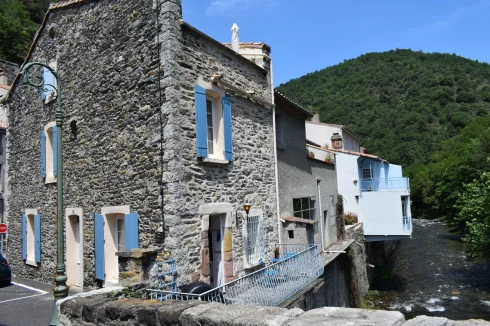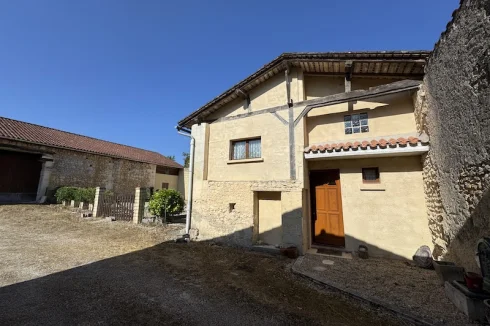Discharge from Hospital in France
Tuesday 16 November 2021
There are a range of of after-care services available on discharge from hospital in France, but they operate in a somewhat fragmented manner.
The term used for after care support in France is 'retour à domicile'.
These services should ordinarily be arranged by the hospital, and most are delivered promptly and to a high standard, but reports are not uncommon of patients being left to their own devices. Even where they may be organised, it is important to ensure that they are adapted to your needs. The position is often more complicated for expatriates who may not have an automatic right to certain services.
Karine Finet, who runs the medical support agency 'Medicial' states that: "Everyone who enters the hospital has a right to something. But if you don't plan ahead, you have to do everything in a hurry."
The problem is often down to a lack of assessment by the hospital, mainly the result lack of staff resources, but the compartmentalised nature of the services is also a contributory factor, as there are several agencies involved:
- The primary provider is the local health authority, the Caisse d’assurance maladie (CPAM);
- There are also services and support that can be organised through the social services branch of the local council, called the Centre Communal d’Action Sociale - CCAS). In smaller communes the service is generally run through the inter-communal council;
- There are advice centres for elderly persons runs by the departmental council, called the Centre local d’information et de coordination (Clic), but also called 'Pôle autonomie' or 'Pôle Info Seniors'. The departments also run the disability centres, called Maison Départementale du Handicap (MDPH).
- Other agencies who may also be involved are your complementary ('top-up') health insurer, your retirement fund if you have a French pension, and the housing agency 'ANAH' (Agence nationale pour l'amélioration de l'habitat).
If your hospitalisation is programmed, the starting point for discussing your after-care needs is with your GP or consultant. Likewise, if following discharge after-care has not been organised and you consider you are in need of support, in the first instance you should contact your GP/consultant.
The main after-care support service organised through CPAM. Clearly, not everyone who is hospitalised will need after-care, but the service should normally be offered systematically to those over 75 years of age and others for whom support at home will be necessary. It service also includes post-natal care.
In principle, you should receive a visit from an advisor (called an assistant social) during your stay in hospital, who will discuss with doctors what support you need on return to home. That support is primarily for coordination of your post-operative services, such physiotherapy or nursing care, but they are also able to organise home help, meals on wheels and aids and adaptions at home.
The aids and adaptations might include installation of the bedroom on the ground floor; acquisition of a booster seat for the toilet seat; installation of grab bars in toilets and bathrooms; installation of non-slip floors; purchase or rental of specialized equipment (medical bed, walker, etc.) and setting up of a remote assistance. We will cover the topic of financial support for aids and adaptions in the home at a future date.
Alongside the organisation of after-care at home there are a range of social benefits that can be used to support any costs that may be involved, although often subject to a test of resources. You would need to discuss with the social worker whether you might be eligible as the criteria vary and rules are complex.
If you are salaried or a business owner then you have an entitlement to sick pay (indemnités journalières) and if you are required to cease your professional activity you may have a right to invalidity benefit or pension.
It is also possible for some individuals to apply for l’aide au retour à domicile après hospitalisation (ARDH).
This assistance is, however, restricted to those who are retired and 65+ years of age and who are in receipt of a French retirement pension, such as retired employees or business owners. The assistance is arranged through your retirement insurance fund.
It is also only available for a maximum of three months, following which your eligibility to other social benefits will need to be considered if you still need support.
It provides funding for home help services, including shopping and meal preparation; the household; carrying meals; patient safety services (e.g. remote alarm); small adaptation work of the housing (grab bar, non-slip mats, stair handrails).
Normally the application for ARDH will be made by the hospital. Depending on your income (including that of your spouse) you may not be eligible and even where eligible you may be required to make a financial contribution for the services. The total amount of support that can be given is capped at €1,800.
If you are still unable to manage at home, it is possible that the hospital will organise for you to spend a period of convalescence in residential care, or a nursing home, either on a permanent or temporary basis. You might be interested to read our article on The Costs of Residential Care in France.
Mention should also be made of hospitalisation at home - Hospitalisation À Domicile (HAD) - an alternative to becoming hospitalised. Your consultant or GP will advise you about the service, and just what can be put in place. It's use is mainly for palliative care.
The service is provided on the same basis a other hospital treatment where the social security system picks up 80% of the cost, or 100% in the case of major or chronic illness. Where there is only 80% reimbursement, the balance should normally be paid your by your complementary (top-up) health insurer.
If you continue to have travel needs for medical procedures (consultations, examinations etc), your transport costs may well be covered by health system, but only on medical prescription. You can read more in our Guide to Transport for Health Treatment.
Thank you for showing an interest in our News section.
Our News section is no longer being published although our catalogue of articles remains in place.
If you found our News useful, please have a look at France Insider, our subscription based News service with in-depth analysis, or our authoritative Guides to France.
If you require advice and assistance with the purchase of French property and moving to France, then take a look at the France Insider Property Clinic.





